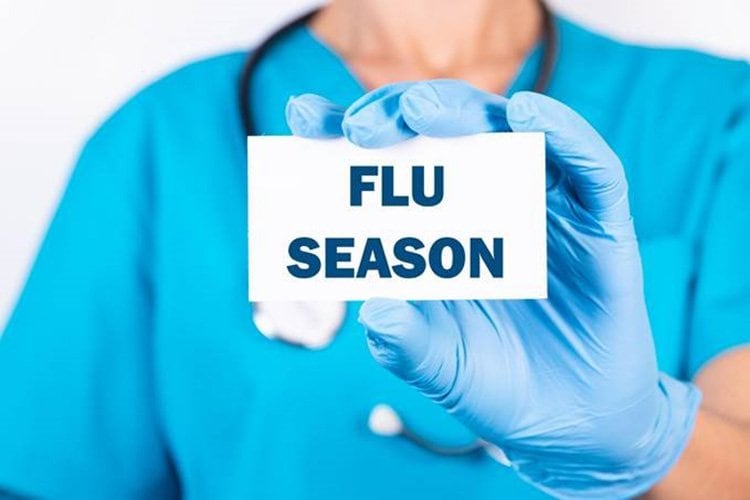Flu Season

Seasonal influenza activity is on the horizon. Protect yourself! The Centers for Disease Control and Prevention (CDC) is estimating that this season will be very similar to last year, with up to 830,000 hospitalizations due to influenza. Getting your flu shot reduces your chances of serious illness from the flu by 40 to 60 percent.
The CDC encourages everyone more than six months old to get vaccinated. They especially urge high-risk individuals and anyone who expects to have contact with high-risk individuals to get immunized. Most insurance plans cover this vaccine which is typically available through your doctor's office, your local Health Department or local drugstores.
If you are allergic to chicken eggs, have ever had Guillain-Barre Syndrome (GBS), or have had severe reactions or illness due to past flu shots, talk to your doctor before getting the vaccine. If you are currently ill, wait until your symptoms lessen and then get vaccinated.
These groups of people have an even higher risk of getting complications from the flu and are most strongly urged to get the flu vaccine:
- Children ages six months to 19 years old
- Adults ages 65 years and older
- People with certain chronic medical conditions such as heart, lung or kidney disease, or a weakened immune system
- Women who will be pregnant during the flu season
- People who live in nursing homes or long-term care facilities
- Health care workers
- People who come in contact with children younger than 6 months (such as childcare workers)
- People who live with any of the above high-risk individuals
Signs and symptoms of influenza can include:
- Fever or feeling feverish/chills
- Cough
- Sore throat
- Runny or stuffy nose
- Muscle pain or body aches
- Headache
- Fatigue
- Vomiting or diarrhea
In addition to getting the flu shot, stay home if you are sick to help protect yourself and others. Those with the flu can be contagious for a day before symptoms start to up to a week after. It can spread during close contact, mainly by droplets from coughing, sneezing or talking around others.
Protect yourself and others from serious illness from the flu by getting your shot this year.
Paul Berg, M.D., M.H.A., senior vice president and chief medical officer, MyMichigan Health.